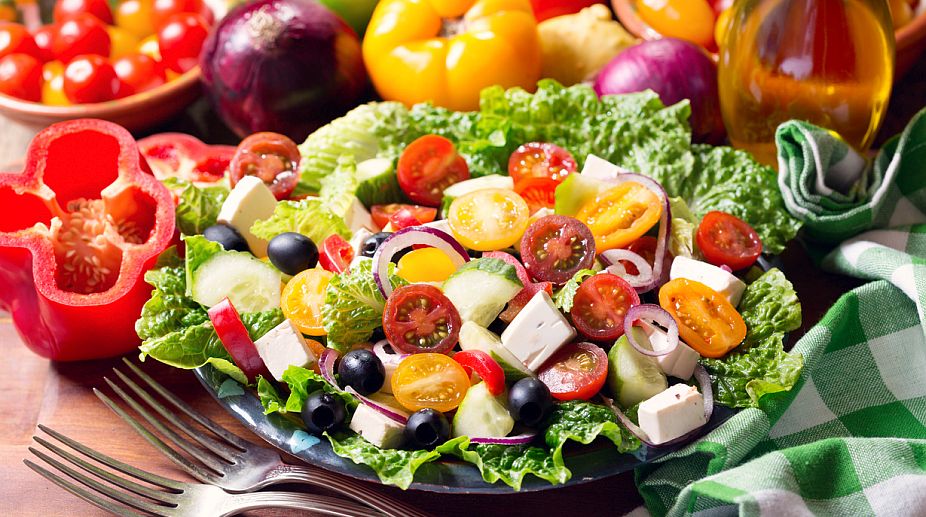Study reveals novel therapeutic target for traumatic brain injury
Health outcomes vary greatly among the approximately 1.5 million Americans who survive a traumatic brain injury each year.
3 things you must include in your child’s everyday diet, and 3 items you should exclude

(Photo: Getty Images)
Your child loves chicken but won’t have chicken curry, loves milk shakes but hates her morning cuppa even if fortified with a chocolate supplement, will finish a plate of onion pakoda but won’t have it in salad. Parents find it their toughest task to decide what to cook that will build their children’s immunity, strength and bone health. Tarika Ahuja, holistic nutritionist, parenting coach and author of ‘Beautiful Children: The Parent’s Essential Guide for Raising Strong, Balanced, Healthy Children’, along with Neeti Sarin, founder, Tiffin’s Etc., a company catering nutritious food to schoolchildren since 1990, have collated some rules to strengthen children’s immune system.
3 ITEMS TO INCLUDE IN YOUR CHILD’S EVERYDAY DIET
1. Whole grains
Most children do not have the habit of eating breakfast, and many mothers don’t tend to realise it much as they replace the same with milk. Therefore, whole-grains become all the more vital in at least two meals every day. Not many know, but whole-grains contain the goodness of energy-giving carbohydrates, which nourishes children’s body and mind helping them to take on their hectic mornings. These whole grains include whole brown rice, whole barley, whole millet (foxtail millet, banyard millet, black millet, finger millet) and whole amaranth. Cracked grains like wheat dalia, barley dalia and steel cut oats are also very important. These contain essential vitamins, minerals and fiber that help digest the food better. The third meal can be a delicious pasta, bread or chapatti but from unadulterated flour instead of refined flours and sugars.
Advertisement
2. Beans and lentils
Who does not love the ever favorite rajma chawal? But did you know that these beans shaped like our kidneys actually help in the proper functioning of the kidneys? Lentils and beans stabilise blood sugar, support heart health, provide healthy protein and energy for the body and mind. Their consumption is also essential for 1-2 meals every day. To make the menu interesting and appetising, you can serve hummus, dips, bean burgers, etc, which are equally nutritious and also taste yum.
3. Leafy vegetables and salads
It is often a task to feed children vegetables, let alone salads. But consistent efforts from the parents ensure wonders of lifetime benefits for the child and their immunity. One successful way of implementing this habit is by making food art. Children love colours, stories, and adventures. They will relish salads more if the dressing is creamy and slightly sweet such as lemony peanut butter dressing or creamy tahini dressing. Not only are these dressings delicious, but the very reason a child will enjoy eating a nutritious salad every day. Different vegetables offer healthy fiber, different nutrients and enough energy to fulfill varying needs of a growing kid. A good variety of salads supports a good digestion and ensures circulation.
3 THINGS YOU SHOULD EXCLUDE FROM YOUR CHILD’S DIET
1. White sugar
No compromise on this point at any cost. World over, research is suggesting that white sugar is a slow poison and contributes to inflammation, acidic blood quality, and many lifestyle diseases. Replace commercial white sugar (which is often bleached besides being refined) with jaggery, dates, organic unprocessed raw sugar (not brown sugar), etc. White sugar is highly acidic and contributes to body mineral depletion.
2. Chemical-laden foods
No matter how appetising they seem, these packet foods such as chips, quick noodles, commercial pickles, processed cheese, commercial preservative filled peanut butter etc are loaded with chemicals and preservatives that weaken the immune function and nervous system of your kid in the long run.
3. Commercial dairy items
Avoiding or reducing commercial dairy may be a tad bit difficult initially, but if we follow a simple rule of making just a few changes every week, no changes are essentially that difficult. Commercial modern cows are injected with hormones to produce more milk and antibiotics for better hygiene and health. These chemicals go into the milk of the cow which is further processed with chemicals and preservatives to make many kinds of commercially packaged cheeses and other dairy products. Commercial dairy is mucus forming, filled with chemicals and preservatives that hinder the proper absorption of nutrients, clog the gut and weaken the digestion for your child. This can be replaced with calcium laden food like broccoli, beans, legumes, mustard greens and other dark leafy greens, nuts, etc.
TIPS TO EFFECTIVELY APPLY THE ABOVE POINTERS
1. Develop umpteen practical and smart shopping skills
The mere act of shopping for the right things makes a huge difference. Certain healthy foods make their way into the kitchen and certain old junk items move out of the kitchen; your cooking is healthier already.
2. Improve your own cooking skills
Taking cooking classes and workshops with holistic nutritionists and practitioners goes a long way in understanding how to prepare the right food for your child. A common presumption is that a child won’t eat healthy food but he or she won’t eat bland food or foods prepared without interesting textures, colours, either. The trick is to know how to combine certain ingredients that satiate their hunger and even leaves a taste for it behind.
Advertisement